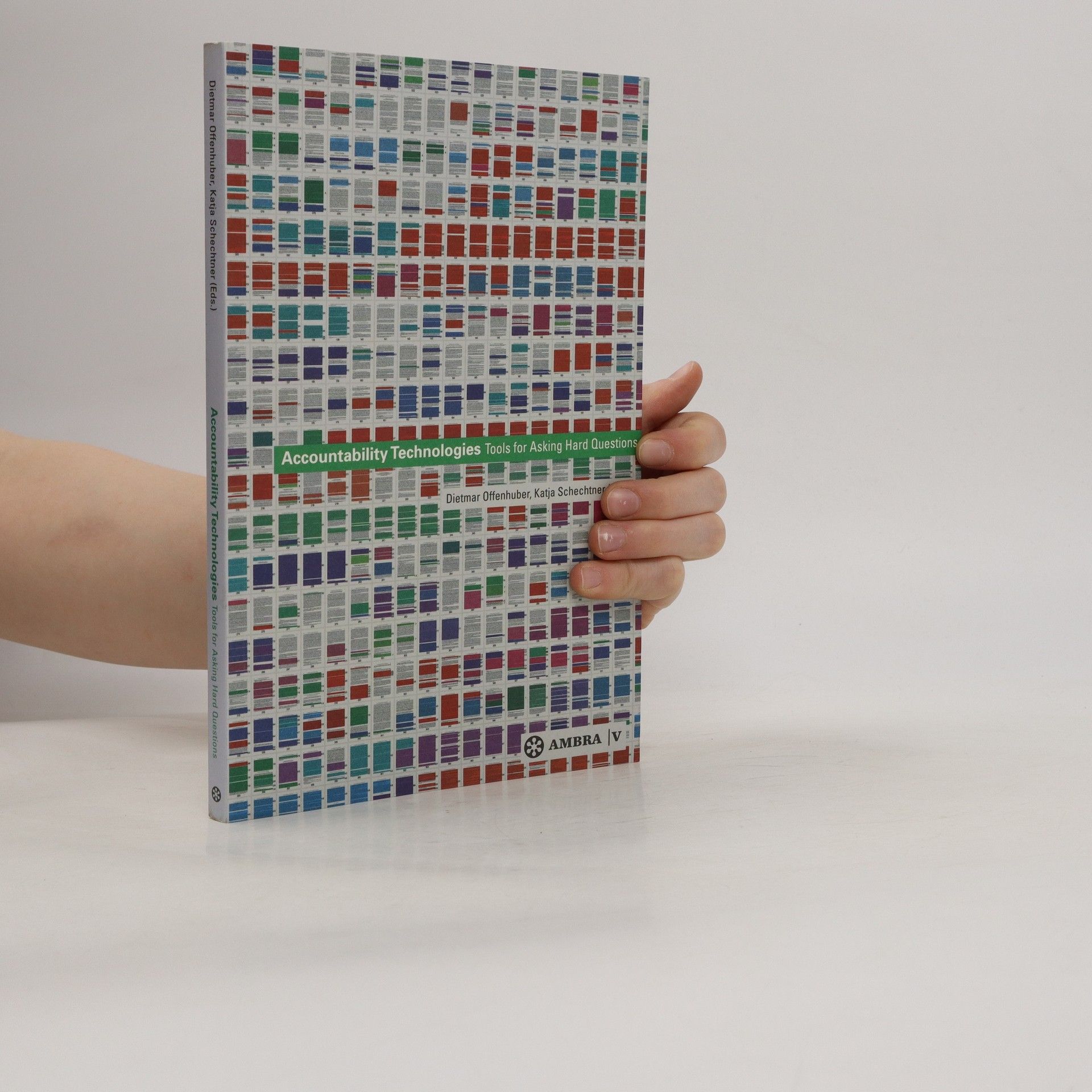Focusing on the innovative concept that data should be treated as a tangible material, this book presents a bold approach to design. It explores how integrating data into the design process can lead to more meaningful and impactful creations. By challenging traditional notions of design and emphasizing the physicality of data, the author encourages readers to rethink their understanding of both design and the role of information in shaping our environments.
Dietmar Offenhuber Book order (chronological)
Dietmar Offenhuber is an assistant professor whose work bridges the fields of art and design with public policy. He leads a graduate program focused on information design and visualization, indicating a deep engagement with how data and visual communication intersect with societal issues. His academic position suggests a commitment to exploring the practical and theoretical applications of design thinking in public contexts.


Accountability Technologies
Tools for Asking Hard Questions
A growing part of the public is concerned about cities being designed and governed in a responsible way. In the contemporary information society, however, the democratic obligation of the citizens to inform themselves thoroughly, so that they can participate in public affairs has become impossible to fulfill. Rather than submitting to the opinions of self-proclaimed experts, citizens need new ways to make sense of what is going on around them. Accountability technologies stand for new innovative approaches to bottom-up governance: technologies to monitor those in power and hold them accountable for their actions. Accountability technologies are designed to coordinate citizen-led data collection, visualization and analysis in order to achieve social change. This book takes a close look at initiatives that have succeeded in making an impact on the reality of the city, as well as the motivations, strategies and tactics of the people who create and use these technologies. How can data generated by citizens be put into action?